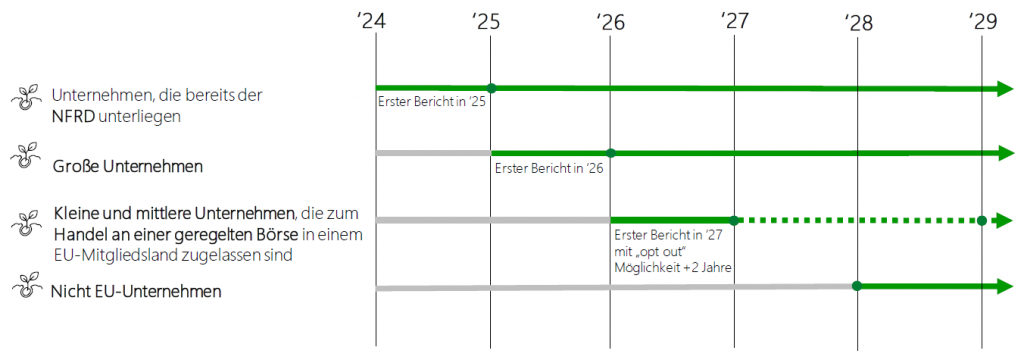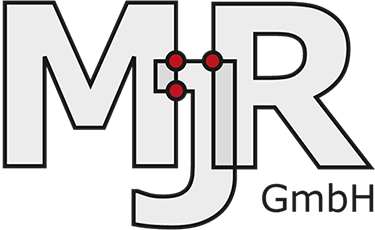Inhalt

Julia Eberle
Marketing Managerin
Your partner for ERP and technology.
CSRD and Sustainability management: focusing on corporate responsibility
In a world that is increasingly characterized by environmental problems and social challenges, the topic of Corporate Social Responsibility Disclosure (CSRD) and sustainability management is becoming more and more important. Companies have an increasing responsibility not only to pursue economic goals, but also to integrate social and ecological aspects into their business strategies.
EU Directive on CSRD: When do I have to take action as a company?
The European Union has recognized that clear guidelines are needed to encourage companies to take a responsible approach to environmental and social issues. The CSRD Directive (Corporate Sustainability Reporting Directive) is a significant step in this direction. Companies need to understand that this directive is not just a recommendation, but an obligation. But when do companies need to take action.
The CSRD Directive stipulates that large companies with more than 500 employees will be obliged to report not only on financial aspects but also on environmental and social issues from the 2023 financial year. This means that companies need to take action now to adapt their reporting processes and ensure that they comply with the new requirements.
Find out more about the EU directive on our solution page: CSRD reporting.

What does a sustainability manager?
The introduction of CSRD brings the role of the Sustainability Manager to the fore. These professionals are responsible for developing and implementing sustainability strategies and ensuring compliance with standards. A sustainability manager must have a deep understanding of environmental and social issues and be able to integrate them into the business strategy.
The tasks of a sustainability manager also include identifying opportunities for sustainable growth and developing measures to reduce negative impacts on the environment and society. This role is becoming increasingly important as companies are evaluated not only on financial metrics, but also on their contribution to a more sustainable future.
What is Greenwashing?
One term that crops up time and again in this context is „greenwashing“. Greenwashing refers to the practice of companies presenting themselves as particularly environmentally friendly and sustainable in their public image without this being true in reality. It is a misleading tactic that aims to strengthen the positive image of a company without actually taking substantial measures for environmental and social responsibility.
It is important to understand that greenwashing not only undermines consumer and investor confidence, but can also damage the reputation of the entire industry. The CSRD Directive should also be seen as a response to such practices and should ensure that companies report transparently and honestly on their sustainability efforts.
Sustainability as a corporate obligation
Overall, it is clear that sustainability and responsible business practices are no longer just an option, but a corporate obligation. The CSRD Directive is a step in the right direction to ensure that companies live up to their responsibilities and make a positive contribution to a more sustainable world. Sustainability managers play a key role in successfully shaping these changes and putting companies on a sustainable course. It is now up to companies to take up these challenges and take action to create a sustainable future for all.
Contact us now: MJR and HYPT are your competent contacts for CSRD.

Contact us directly here
Marcel Kosel
Sales Manager








